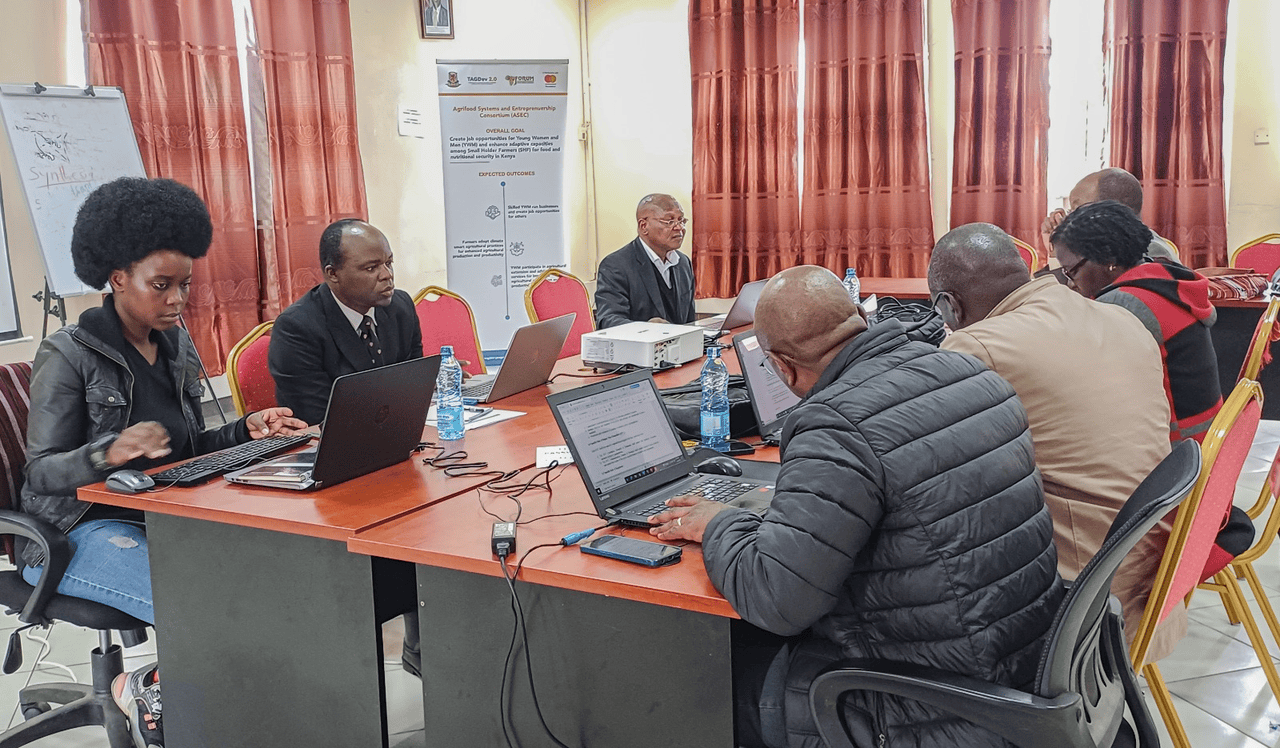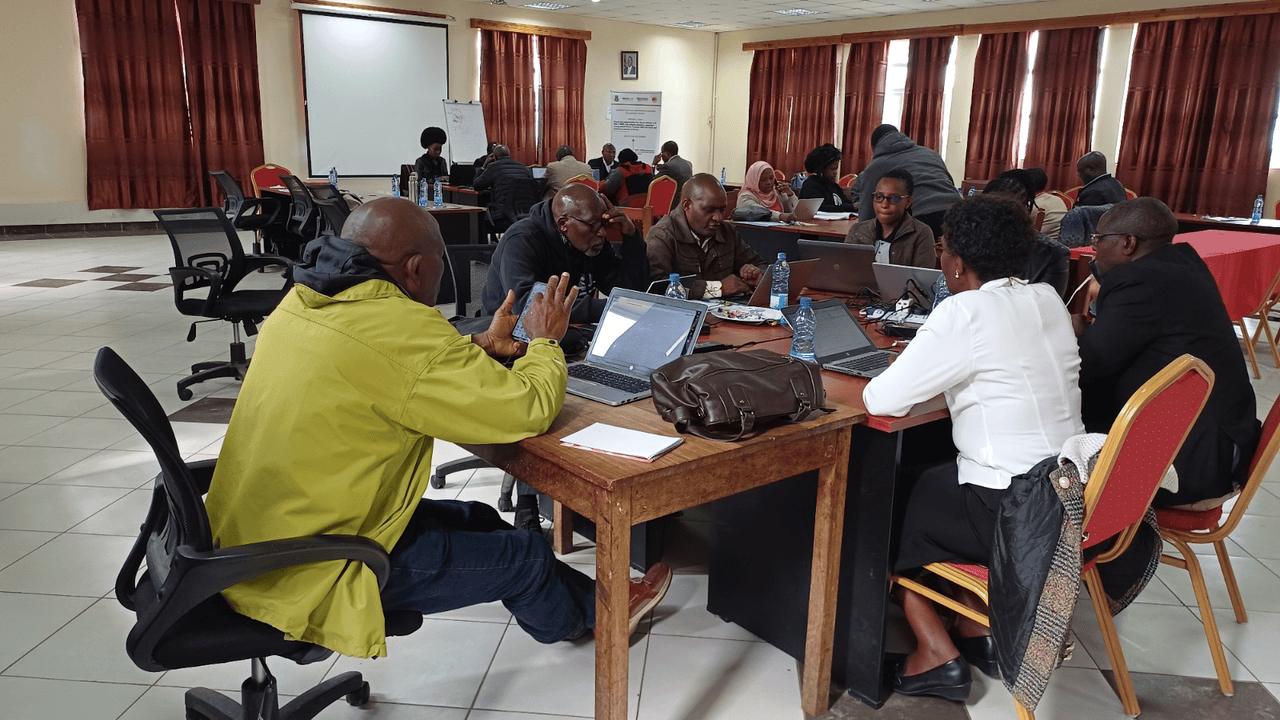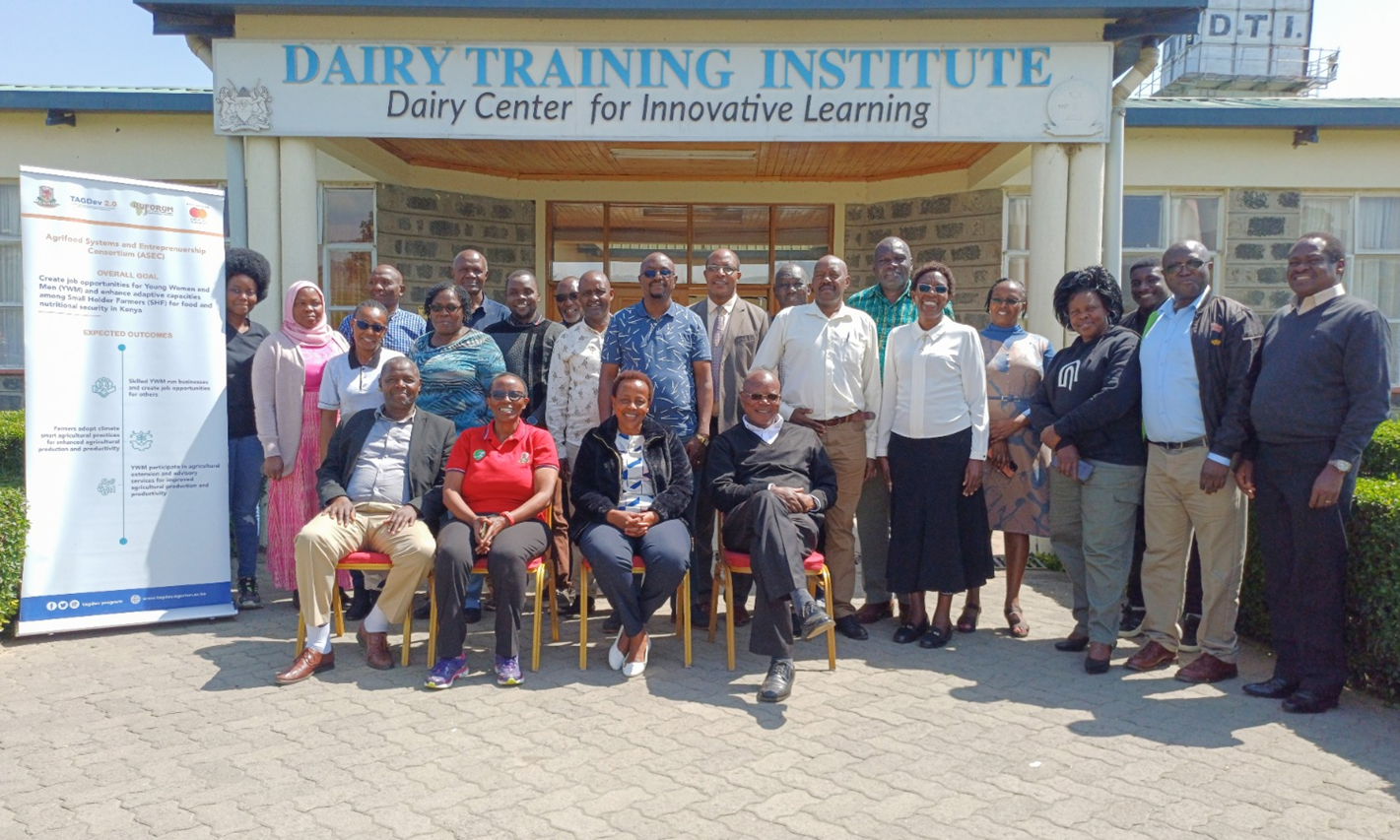Egerton University is one of the 12 African Universities implementing Transforming African Agricultural Universities to Meaningfully Contribute to Africa’s Growth and Development (TAGDev 2.0) program for the period between 2023-2033. TAGDev 2.0 is a collaboration program between Mastercard Foundation, the Regional Universities Forum for Capacity Building in Agriculture (RUFORUM), the Global Confederation of Higher Education Associations for Agricultural and Life Sciences (GCHERA), and 12 African universities. This transformative initiative is designed to equip and empower young women and men and their institutions to foster inclusive, equitable, and resilient socio-economic development within their communities. To achieve this goal, TAGDev Program has partnered with the university in reviewing and developing policies aimed at enhancing a conducive environment for the delivery of transformative education.
The meeting held on 28th and 29th July 2025, at Dairy Training Institute in Naivasha brought together 22 Deans and Directors from across the university to consider 6 policies. The Deputy Vice Chancellor, Academics, Research and Extension Prof. Bernard O. Aduda, chaired the meeting. His opening remarks highlighted that the engagement marked a significant step in strengthening institutional capacity through collaborative policy review and development. The Director-Quality Assurance, Prof. Patricia Wambugu, appreciated the ongoing policy development and review process, describing it as a key step towards aligning the university’s practices with the requirements of the Commission for University Education (CUE). She emphasized the need for a comprehensive report on university policies and their implementation status, which is to be submitted to CUE by the end of the year 2025.

The TAGDev Program Coordinator expressed gratitude to the university leadership for organizing the Deans' Committee meeting. A brief overview of the TAGDev program was provided, emphasizing its core focus on transformative education through curriculum reform and institutional policy development. Other key program areas include engagement with farmers to enhance adoption of climate smart agricultural practices, and initiatives aimed at creating employment opportunities for young women and men, with the ambitious goal of contributing to 25,000 jobs. Participants were encouraged to share ideas on how job creation could be further enhanced through the university’s academic and outreach programs. The coordinator further underscored that the purpose of supporting policy development and review is to drive institutional transformation and ensure alignment with evolving academic and social needs. The issue of effective policy implementation for institutional transformation was mentioned as a key consideration during the development and review process. Additionally, the Deans were urged to identify the structural and operational obstacles that hinder the delivery of transformative education at Egerton University and to propose areas of engagement where TAGDev can provide support.
During the one and half-day meeting, participants were divided into working groups to engage in intensive review of six critical policies including: Egerton University Inclusivity Policy; Field/Industrial Attachment Policy; Career Guidance and Mentorship Policy; Safeguarding Policy; Teaching Practice Policy; and Innovation and Entrepreneurship Policy. The discussions focused not only on content but also on practical implementation strategies and alignment with institutional goals. Recommendations were made on formatting all policies using a standardized development template. Furthermore, participants proposed the development of policy implementation guidelines to accompany each policy, ensuring clarity on operational steps and accountability structures. Participants also recognized that some of the policies require coordinated leadership beyond individual departments, calling for the identification of dedicated offices or directorates that can spearhead their enforcement

The meeting concluded with a strong commitment to finalize the reviewed policies with a uniform format and to develop accompanying implementation frameworks in preparation for further discussion and approval. Upon approval and implementation, the policies are expected to contribute significantly to Egerton University’s goal of enhancing quality, relevance, and impact in higher education space grounded in inclusive and responsive governance.


